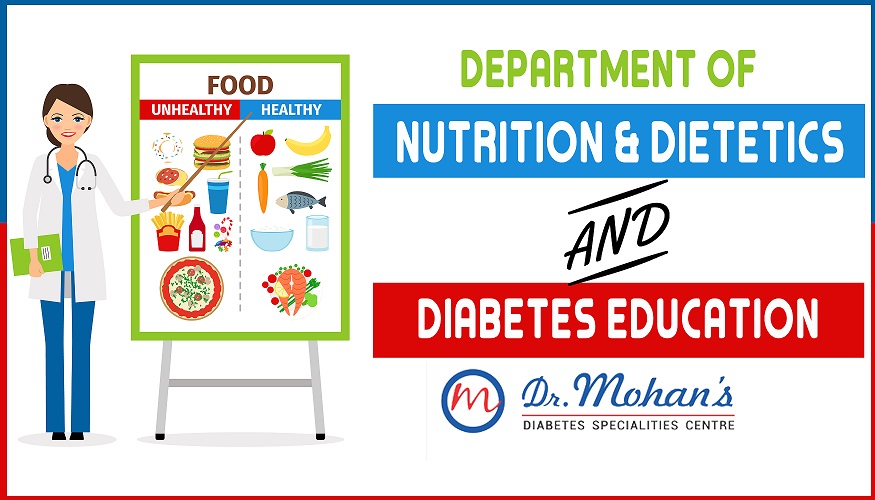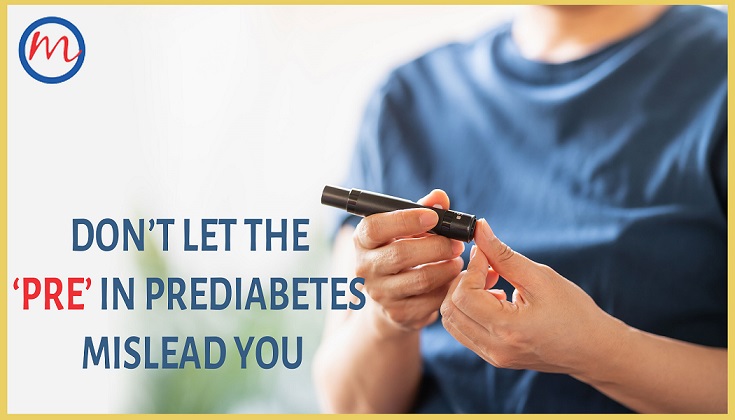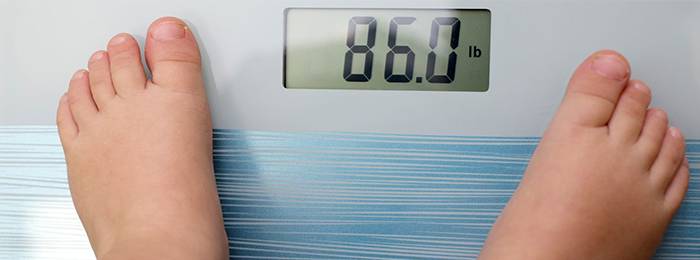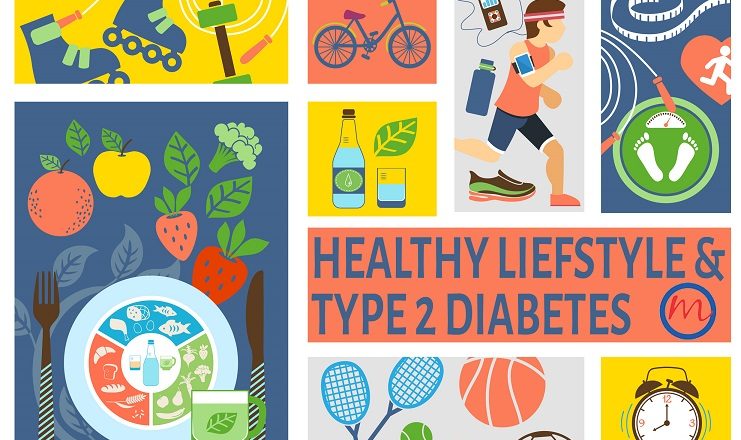The Department of Nutrition & Dietetics at Dr.Mohan’s assesses the patient’s nutritional status, provides education and counselling and monitors the patient’s progress. The main aim of the department is to improve the overall health of the patient through optimal nutrition to maintain a reasonable weight and thereby help to control diabetes and prevent its complications.
Providing appropriate nutrition in the hospital is a challenging task due to the diverse dietary needs for different medical conditions. Hence, we attempt to tailor the nutrient requirement based on age, sex, weight, height, physical activity, physiological needs, current dietary history, personal preferences and associated co-morbid conditions. This facility is available to all patients in outpatient department (OPD) & inpatient department (IPD). In the IPD, dietitians go forward rounds, determine nutritional needs and plan normal as well as therapeutic diets. Dietitians ensure that optimum nutrition is provided for all patients undergoing various types of treatment and recovering from different types of surgeries.
Unlike other acute illnesses, patients with diabetes have to learn to live with their disease. Hence, the Dietitian /Diabetes educator spends a considerable amount of time educating the patient on various topics like awareness of diabetes, self-monitoring of blood glucose, management of hypoglycaemia, benefits of exercise, self-administration of insulin injections, continuous subcutaneous insulin infusion (CSII) pump and continuous glucose monitoring (CGM) devices.
Education is delivered on a one to one basis or via group discussions, with the aid of printed leaflets, pamphlets, books etc.
Diabetes education is an ongoing process and the approach of our diabetes educator is to
- Support patients in their efforts to decide upon, initiate and maintain healthy patterns of self-care
- Facilitate change: the key is to ask questions and offer options rather than to issue directives
- Assist patients to identify gaps in currently available support that they receive from family, friends, co-workers and medical staff and to create plans to fill these gaps
- Develop coping skills, and
- Promote motivation and courage.
Dietitians/Diabetes Educators use the EUP principle.
What is EUP?
E- Educate
U – Understand
P – Practice
After Educating the patient, they find out if the patient has understood through interactive sessions. However, as we all know, even if they do understand, many people may not Practise what has been taught. This underscores the importance of repeated follow-up visits and constant motivation. The true success of Diabetes Educators only comes when their patients practise what has been taught.




